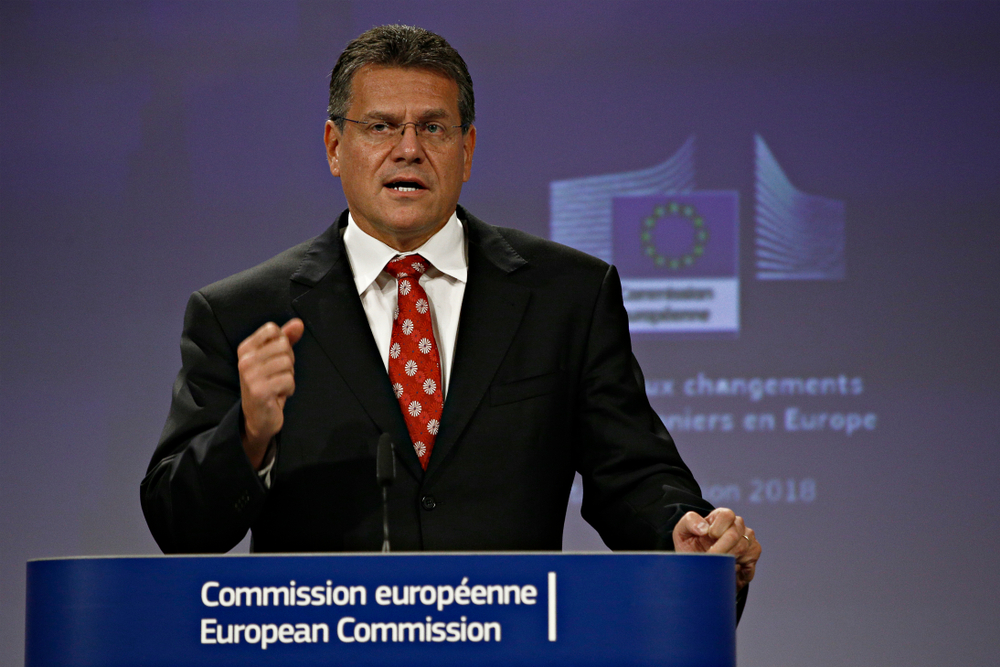Hoping to prevent a potential trade war, a top European Union official met with Trump administration representatives to discuss tariff policies and economic fairness. European Commissioner for Trade and Economic Security Maroš Šefčovič emphasized the need for reciprocity in trade, warning against measures that could escalate economic tensions.
Seeking Fairness in Trade Policies
During a four-hour meeting, Šefčovič addressed U.S. concerns about trade imbalances. “The top objective as it was presented to us yesterday by our American partners is reciprocity,” he stated. The discussion aimed to clarify how both sides could achieve fair trading conditions while avoiding economic retaliation.
Trump’s Push for Higher Tariffs
President Donald Trump has pledged to impose higher taxes on European imports, claiming they should match those levied on American products. However, his proposal includes Europe’s value-added tax (VAT), which functions similarly to a sales tax, potentially leading to significantly increased import costs. If the EU retaliates with countermeasures, both economies could face a slowdown, higher inflation, and political fallout.
Concerns Over Industry-Specific Tariffs
Beyond general trade policies, Trump has also proposed new tariffs targeting key industries such as automobiles, pharmaceuticals, and computer chips. Additionally, the 25% tariffs on steel and aluminum, already in place, lack any exemptions, further straining transatlantic trade relations.
EU’s Call for Cooperation
Šefčovič sought to highlight that VAT should not be treated as a trade barrier, arguing, “It is paid by the final consumer,” though the issue remains unresolved. He also pointed out that the U.S. and EU should focus on tackling China’s industrial overcapacity, particularly in steel, rather than engaging in economic conflicts with each other.
A Step Toward Resolution
Despite challenges, Šefčovič remained hopeful. “We would like to see where we can, like, move first and fast, because I really would like to avoid the pain of measures and countermeasures,” he said. Establishing a strong personal relationship with U.S. officials was seen as key to finding a solution. “I’m glad that it happened and that we could have such an intense meeting,” he added, emphasizing the need to maintain momentum.
The meeting marked a crucial attempt to stabilize trade relations, with both sides now considering their next steps. If successful, continued diplomacy may prevent a full-scale trade war and foster economic cooperation.


